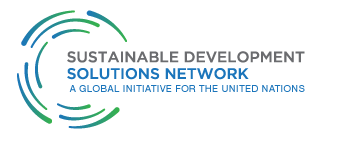The UN Sustainable Development Solutions Network (SDSN) presented its interim report on the Deep Decarbonization Pathways Project (DDPP) to UN Secretary-General Ban Ki-moon.
The report, ‘Pathways to Deep Decarbonization,' illustrates options for how major emitting countries can decrease their carbon emissions to achieve a low-carbon economy by 2050.
 8 July 2014: The UN Sustainable Development Solutions Network (SDSN) presented its interim report on the Deep Decarbonization Pathways Project (DDPP) to UN Secretary-General Ban Ki-moon. The report, ‘Pathways to Deep Decarbonization,’ illustrates options for how major emitting countries can decrease their carbon emissions to achieve a low-carbon economy by 2050.
8 July 2014: The UN Sustainable Development Solutions Network (SDSN) presented its interim report on the Deep Decarbonization Pathways Project (DDPP) to UN Secretary-General Ban Ki-moon. The report, ‘Pathways to Deep Decarbonization,’ illustrates options for how major emitting countries can decrease their carbon emissions to achieve a low-carbon economy by 2050.
“This report shows what is possible,” Ban said, noting that the project aims “to demonstrate how countries can contribute to achieving the globally agreed target of limiting global temperature rise to below two degrees.” Jeffrey Sachs, SDSN Director, stressed the “report is all about the practicalities.” He said one key message from the report is to invest in developing low-carbon technologies, such as wind and carbon capture and storage (CCS).
The report presents 15 national pathways for the deep decarbonization of energy systems based on three common pillars. The pillars are: energy efficiency and energy conservation in all energy end-use sectors; decarbonization of electricity, including through renewable energy sources and carbon capture and sequestration; and replacing fossil fuels in heating, industrial and transport processes with a mix of low-carbon electricity, hydrogen and sustainable biofuels.
The report further aims to help countries set bold targets in advance of 2015 climate change negotiations, including the UN Climate Summit and the UN Framework Convention on Climate Change (UNFCCC) conference. The report recommends the preparation of national Deep Decarbonization Pathways.
Also in July, the SDSN launched its South Asia Regional Network at a brainstorming workshop on priority sustainability challenges in South Asia, which took place on 6 July 2014, in New Delhi, India. The Energy and Resources Institute (TERI) University in India and BRAC University in Bangladesh will serve as the South Asia Regional SDSN Centers.
The SDSN South Asia Regional Network aims to provide a platform for the creation and application of sustainability solutions in South Asia. Rajendra K. Pachauri, Director General, TERI, expressed the hope that the launch of the Network “will develop and implement solutions that would promote sustainability across the entire region.”
UN Secretary-General Ban Ki-moon launched SDSN and its Regional Centers in 2012 to coordinate activities among stakeholder groups and facilitate solution-oriented partnerships on critical development challenges. Colombia University hosts the SDSN Secretariat, which has staff in Paris, France, New York, US, and New Delhi, India. [SDSN Press Release on DDPP] [UN Secretary-General Remarks] [Publication: Pathways to Deep Decarbonization] [SDSN Press Release on South Asia Network] [SDSN Website] [TERI Website] [BRAC University Website] [IISD RS Sources] [UN Press Release]